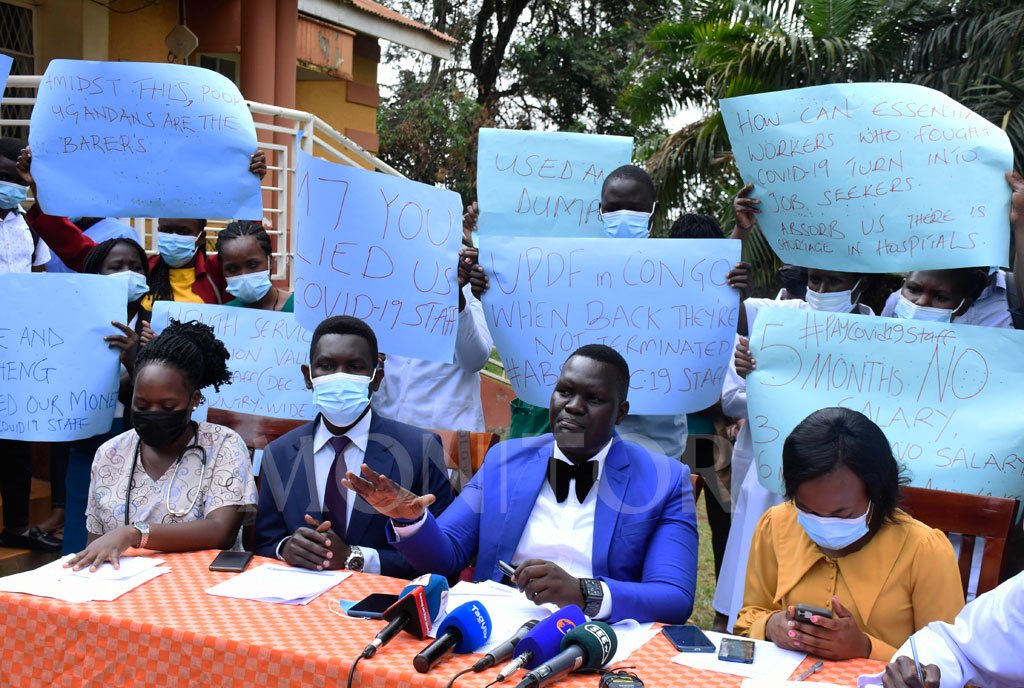Facilitate health workers to do their work effectively

Surgeons at Soroti Regional Referral Hospital conduct an operation on conjoined twins in March last year.Health workers under their umbrella body, the Uganda Medical Association (UMA), have issued a fresh ultimatum to government over pay rise. PHOTO/FILE
What you need to know:
- The issue: Health workers.
- Our view: A healthy nation is, indeed, a wealthy nation. So if government is indeed serious about its goal of turning Uganda into a middle income country, it should invest more in the health sector.
Last Friday, a team of doctors at Mbarara Regional Referral Hospital successfully separated conjoined twins, who were born at 33 weeks. See Daily Monitor, Wednesday, May 4, “Mbarara hospital separates conjoined twins.”
The Mbarara Regional Referral Hospital director, Dr Celestine Barigye, said the operation took eight hours. We commend the hospital and doctors involved in the procedure and applaud the hospital management for conducting the free operation, which would have cost Shs20 million at a private hospital, according to Dr Barigye. We also wish the twins a quick recovery.
Uganda is blessed with health workers who are capable of carrying out surgical operations and other medical procedures, but their work is impeded by shortage of equipment to carry out their duty, low pay and poor working environment.
We call upon government to ensure that the health sector is well funded to enable hospitals purchase equipment and health workers earn good remunerations.
The poor pay of health workers and the unconducive environment they are compelled to work in have driven some to seek employment in foreign countries where, ironically, the few Ugandans who can afford are flown for treatment by these specialists.
Health facilities in Uganda, including referral hospitals, have a shortage of essential equipment that health workers require to ably carryout their noble duties.
Cases of government health facilities, especially in rural areas, running out of drugs and sundries are common. Some health workers put their lives at risk attending to patients without protective gear such as gloves and masks due to shortages. There is also a shortage of houses for health workers countrywide.
Water supply is also a major challenge to health facilities, causing a sanitation problem and gravely hindering the work of health workers. Many health facilities are not connected to the national electricity grid. Neither do they have solar power, forcing health workers to attend to patients at the facilities at night using lights from touches and hurricane lamps.
A healthy nation is, indeed, a wealthy nation. So if government is indeed serious about its goal of turning Uganda into a middle income country, it should invest more in the health sector.




